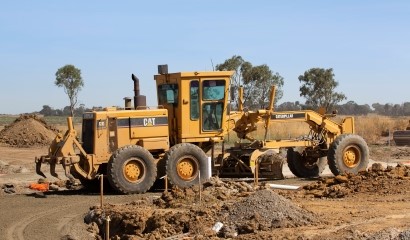Data center acquisition scope widens as investors double down on infrastructure
Bitcoin miners, cooling systems, and power suppliers are among the expanding list of data center acquisition targets in the US and beyond, according to multiple sector advisors and executives.
While the rise of artificial intelligence and other advances in computing put data centers in the crosshairs of consolidators in recent years, ancillary businesses are now coming to the fore.
Amazon’s [NASDAQ:AMZN] acquisition of a data center campus from Talen Energy [OTCQX:TLNE] for USD 650m in March is an example of the type of deals that tech firms will seek to shore up their energy needs, the advisors say.
Data centers require a lot of energy to operate, Boston Consulting Group senior partner Clark O’Neill noted, so it only made sense Amazon would buy a campus connected to a nuclear power plant.
Expect more firms to invest in alternative energy sources to power their digital infrastructure, he said. Strategics are also partnering with old economy stalwarts like Cummins [NYSE:CMI] to keep their data centers running with on-site diesel generators, while simultaneously working on solutions to reduce carbon emissions, O’Neill added.
Data centers are projected to consume 8% of the electricity in the US by 2030, compared to 3% in 2022, according to a Goldman Sachs report last week that noted the need for utilities to invest in new generation capacity.
The scarcity of power for the data centers needed to process AI applications is putting bitcoin miners into the frame.
Traditional operators such as Equinix [NASDAQ:EQIX] cannot switch their data centers to AI applications during client contracts that typically last seven to 10 years, executives say. It takes a few years to build the power plants needed to run the centers, they add, which has allowed bitcoin miners with access to low-cost power to serve the market.
Power hungry
Iris Energy [NASDAQ:IREN], which plans to develop 510 megawatts of data center capacity in 2024 and has at least another 2,500 megawatts in the pipeline, is one such miner. It is mostly focused on bitcoin mining, but it can pivot to high-performance computing applications such as AI within weeks, said co-founder and co-CEO Daniel Roberts.
“If you want to grow and you’re a bitcoin mining business or a data center business, you need that power and land,” Roberts said. “M&A makes sense through that lens.”
Another is Core Scientific [NASDAQ:CORZ]. In a move to broaden its revenue model after emerging from bankruptcy in January, the bitcoin miner converted some of its machinery to power AI hyperscaler Coreweave’s workloads.
High-performance computing is widely viewed as a major growth driver for Core Scientific.
A second wave of miners may switch their data center infrastructure to serve the AI market after 2028, when the next bitcoin halving makes mining more competitive and potentially less profitable for them.
“We are at a critical inflection point in the industry,” said Greenberg Traurig attorney Kemal Hawa.
A few years ago, the discussion was about data centers of 20 to 50 megawatts of power, but with the advent of AI, the market is seeing projects range from 200 to 500 megawatts, Hawa explained. “There is an enormous need for capital in view of the size and scale of these projects, which can cost in the billions [of dollars] to complete,” he said.
Data center operators are exploring alternatives to raise funds and lower their cost of capital through joint ventures, structured equity, debt financings, and selling off legacy assets, according to Hawa.
Acquisitions spike
The last few years have seen a spike in data center acquisitions. Since 2021, there has been more than USD 70bn in disclosed data center deal volume in North America, according to Mergermarket. Financial sponsors have been active in the sector, accounting for nearly USD 50bn of buyouts during that time.
The purchases largely consist of data center operators along with related hosting, processing and software services providers. But deals for ancillary businesses are also starting to materialize.
In January, Thompson Street Capital Partners and Cequel III acquired a controlling interest in DDC Cabinet Technology. Last year, KKR and Mubadala Investment bought CoolIT Systems.
Other providers of differentiated cooling systems for high-performance computing will remain highly sought after as AI and the widening electrification of the economy drive further demand, according to advisors.
Some of today’s consolidators, like Digital Realty [NYSE:DLR] and Equinix, may become M&A targets for large tech firms in the future, according to BCG’s O’Neill. Other players include LightEdge, backed by GI Partners, which made a string of infrastructure buys including that of hosting solutions provider Connectria for undisclosed terms in April.
While some big tech firms turn to M&A, as Microsoft [NASDAQ:MSFT] did when it bought low-power data center processing hardware provider Fungible for USD 190m Iast year, others will build their own infrastructure.
In an interview, Google Cloud CEO Thomas Kurian said parent Alphabet [NASDAQ:GOOG] is actively buying land and developing data center campuses, but it has no plans to make business acquisitions to expand its infrastructure. This week, Google disclosed it is investing USD 1.1bn in its campus in Finland to “further unlock the potential of AI.”











